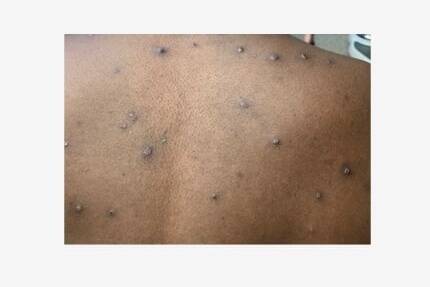Washington state Department of Health officials are working to obtain and distribute Monkeypox vaccines as cases rise across the state and encourage people to take precautions.
During a meeting on Thursday, Aug. 4, Health Secretary Dr. Umair A. Shah and several other DOH officials discussed the nature of the Monkeypox Virus and how people can protect themselves from it.
There are currently 166 confirmed Monkeypox cases in Washington and 144 of those are in King County, according to the Department of Health. Chief Science Officer Dr. Tao Sheng Kwan-Gett said that Monkeypox cases have been doubling roughly every week in Washington.
The virus can cause flu-like symptoms but is most notably characterized by a rash on the body that can look like pimples or blisters and are itchy or painful, according to the Centers for Disease Control and Prevention. People who develop symptoms of the Monkeypox virus should isolate and consult their healthcare provider, people without access to a healthcare provider can contact their local health department.
In Washington, Monkeypox virus vaccines are being prioritized for people who have had direct exposure to someone with the virus, said Michele Roberts, assistant secretary for prevention and health. Roberts said the Department of Health has already distributed 6,800 doses of the vaccine and 17,000 doses are expected to be made available in the next four to six weeks.
While vaccines will play a key role in the response to the Monkeypox outbreak, taking steps to prevent being exposed to the virus is incredibly important, Shah said.
The virus is primarily spread via contact with the skin or body fluids of an infected person, this includes but is not limited to sexual contact. However, you can also contract the virus by touching contaminated objects like the clothing or bedding of someone who has the virus. Additionally, the virus is spread through respiratory droplets during prolonged face-to-face contact with infected individuals.
Avoiding crowded situations where skin-to-skin contact is likely is a good way to protect yourself from getting Monkeypox. If you notice a new rash or have any of the symptoms you should isolate and schedule an appointment with a doctor, Kwan-Gett said.
Several speakers made it clear that Monkeypox is not a sexually transmitted infection and is not limited to the LGBTQ community and that everyone is at risk of contracting the virus.
“Anyone can get Monkeypox, regardless of gender or sexual identity,” said Naisha Williams, Director of Community Relations and Equity.
Most people recover from Monkeypox in two to four weeks without treatment and to date, there have been no deaths due to Monkeypox in the U.S. Kwan-Gett said. For more information regarding the Monkeypox outbreak in Washington visit the Washington Department of Health website.



